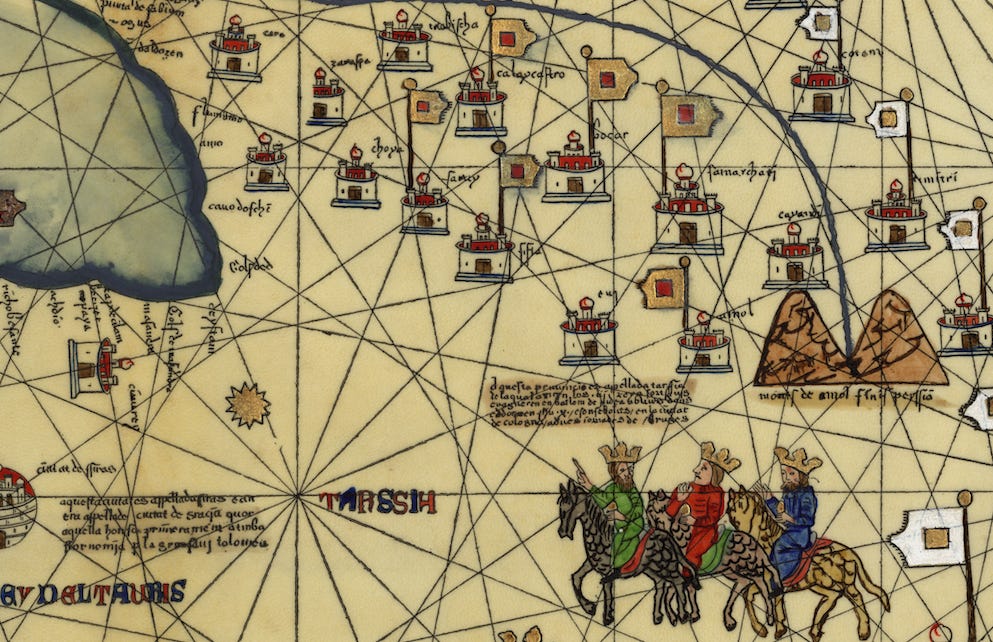Week signals: Three unwise men
Plus: watch points for NATO, China, Thailand, the DRC, and Panama.

This week:
IN REVIEW. Mixed messages, signals to watch, incentives and constraints.
UP AHEAD. A summit in Brussels, a purge in Beijing, a king in Bangkok, a conundrum in eastern Congo, and protests in Panama.
Connect with me on LinkedIn and X (Twitter).
Week Signals is the Saturday note for clients of Geopolitical Strategy, also available to GD Professional subscribers on Geopolitical Dispatch.
The Week in Review: Netanyahu, Khamenei, and Trump
The week began with war between Israel and Iran, it ended with ongoing speculation of US involvement.
As we wrote last Saturday, the war began as a tactical masterstroke but contained the seeds of strategic folly. This assessment remains unchanged. The war was one of choice, not necessity. Iran was certainly stockpiling enriched uranium, but the solution to this was in advanced diplomatic talks. With Iran’s chief negotiator now dead, Israel has only its chosen, and more expensive and uncertain, option to rely on.
Costing Israel up to an estimated $1 billion per day, it's yet another fiscal burden for a small state with a divided population and a declining credit rating. The sustained rally in Israeli stocks would seem to contradict this. Even as the Tel Aviv Stock Exchange was hit by an Iranian missile, the TA-35 index hit a record high. However, this success is more due to the outsized role of its constituents in Silicon Valley and European rearmament. Should the war drag on, or escalate to a regional confrontation involving the US or not, Israel’s brands and exports will likely be affected.
While, as Donald Trump might say, this makes great television, war is a serious business and other markets, most notably for oil, remain on tenterhooks. The last 24 hours have continued to see mixed messages from the White House. In the wake of Europe-Iran talks in Geneva, Trump has said he might support a ceasefire “depending on the circumstances” but won’t push for one as long as Israel is “winning”. He has suggested that Steve Witkoff continues to engage with Iran, but has dismissed diplomatic efforts so far (not to mention the views of his own intelligence agencies).
Mixed messages have also come from Tel Aviv. A hint of an off-ramp was given when Israel’s foreign minister said Iran’s nuclear program had been pushed back “two to three years,” an outcome Benjamin Netanyahu could easily accept as “victory.” Yet the IDF has warned of a “prolonged campaign,” and for as long as Iran’s nuclear facilities under Fordow remain intact (hence the call for the US to join the fray), denuclearisation will not have been achieved.
Tehran has been all over the place as well. Its foreign minister said there was “no room” for nuclear talks while Israel’s attacks continued, and that Washington was Israel’s “partner in crime.” Yet by engaging with European diplomats, the minister’s actions speak otherwise. Behind the scenes, Muscat, Moscow and even Beijing are said to be engaged.
Our base case from last Saturday, of a 40% probability of calibrated containment, still seems about correct. On balance, we think Trump is now leaning more toward involvement, despite the wishes of his base. But by giving himself a two-week window to decide, there’s also a better than even chance that things will resolve themselves in a way where he doesn’t need to (or can just kick the can further down the road).
In this view, either Israel will declare a premature victory or at least agree to a ceasefire. Or it will find a way to neutralise Fordow through commando raids or cyber-sabotage. With the entire premise of the war likely fabricated to begin with, a fabricated victory is not out of the question. And while it could all be self-defeating – Iran’s nuclear imperatives have only now increased, and if there’s been any regime change this week, it’s been via Ayatollah Ali Khamenei’s transfer of military power to the IGRC high command – pyrrhic victories tend to be the rule, not the exception, of the Middle East.
So what signals are worth watching in the fortnight ahead? What are the constraints and incentives likely to matter?
Before examining that, it’s worth remembering that this is less a war between two or three states – Israel, Iran, and potentially the US – but between two or three aging and idiosyncratic men: Netanyahu (75), Khamenei (86), and potentially Trump (79). Each towers above his respective system. Each has a record for ignoring official advice. Understanding the constraints and incentives of each individual is thus more useful than the conventional geopolitical frameworks of war.


